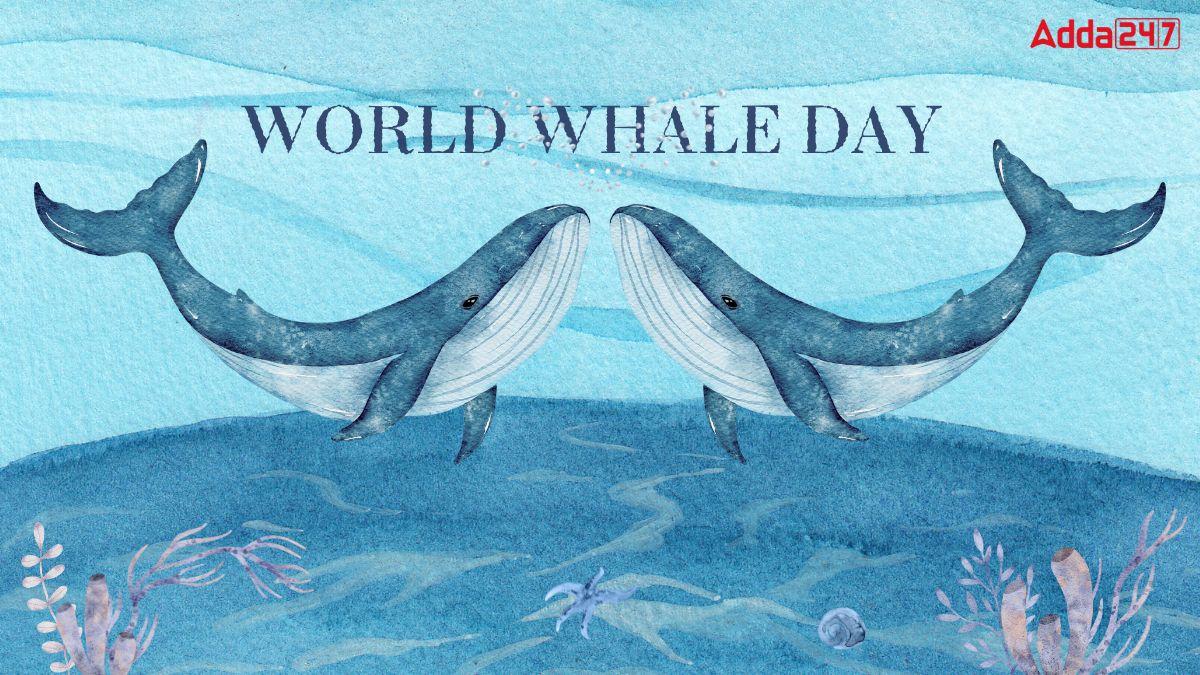World Whale Day, observed on the third Sunday of February, is a pivotal event aimed at highlighting the critical importance of whale conservation. This year, the day falls on February 18, spotlighting the urgent need to protect these marine behemoths crucial for ecological equilibrium. Originating in 1980 through the efforts of Greg Kauffman and the Pacific Whale Foundation, the initiative has grown from a focus on the endangered North Pacific humpback whales to a broader celebration of whale conservation success, now known as the Maui Whale Festival.
Blue Whales in Indian Waters
India’s Arabian Sea coast has become a notable habitat for blue whales, the planet’s largest creatures. Sightings across Gujarat, Maharashtra, Karnataka, and Kerala underscore the global imperative for whale conservation, emphasizing these gentle giants’ vulnerability and the significance of their protection.
The Critical Role of Whales in Ecology
Whales are not just marvels of the natural world; they are essential players in the Earth’s environmental health. Their contribution to carbon capture is immense, with the International Monetary Fund valuing their ecosystem service at $1 trillion. Furthermore, whales bolster phytoplankton growth, which is crucial for oxygen production and carbon dioxide capture, thereby playing a vital role in combating climate change and maintaining marine biodiversity.
Positive Actions to Honor World Whale Day
World Whale Day encourages impactful actions to safeguard whales:
Adoption Initiatives: Programs like Whale and Dolphin Conservation’s “adopt a whale” initiative offer a direct way to support conservation efforts.
Combatting Plastic Pollution: Engaging in local clean-up efforts and minimizing single-use plastics can significantly reduce ocean pollution.
Climate Change Advocacy: Supporting policies and initiatives aimed at mitigating climate change protects whale habitats and ensures their survival.
Volunteerism and Direct Support: Participating in conservation projects or donating to marine conservation organizations are direct ways to contribute to the wellbeing of whale populations.
Fascinating Whale Facts
- Whales are divided into baleen and toothed categories, with varied feeding habits and ecological roles.
- Humpback whales rely on fat reserves during long migrations, showcasing their remarkable adaptation to diverse marine environments.
- The complex songs of male humpback whales highlight their sophisticated communication and social structures.
- Blue whales, the largest animals ever known, demonstrate the ocean’s vastness and the diversity of life it supports.
- Whales’ longevity, with some species living over 200 years, adds to their mystique and the importance of their preservation.
The Way Forward
The protection of whales is intrinsically linked to the broader health of marine ecosystems and the global environment. World Whale Day serves as a reminder of our shared responsibility to safeguard these magnificent creatures and the oceans they inhabit. By taking concerted actions to protect whales, reduce pollution, and combat climate change, we can ensure that future generations will continue to be inspired by the majesty of whales and the rich biodiversity of our planet.



 Kargil Vijay Diwas 2024, Remembering Ind...
Kargil Vijay Diwas 2024, Remembering Ind...
 Important Days in July 2024, Check Natio...
Important Days in July 2024, Check Natio...
 National Brain Research Centre Celebrate...
National Brain Research Centre Celebrate...
